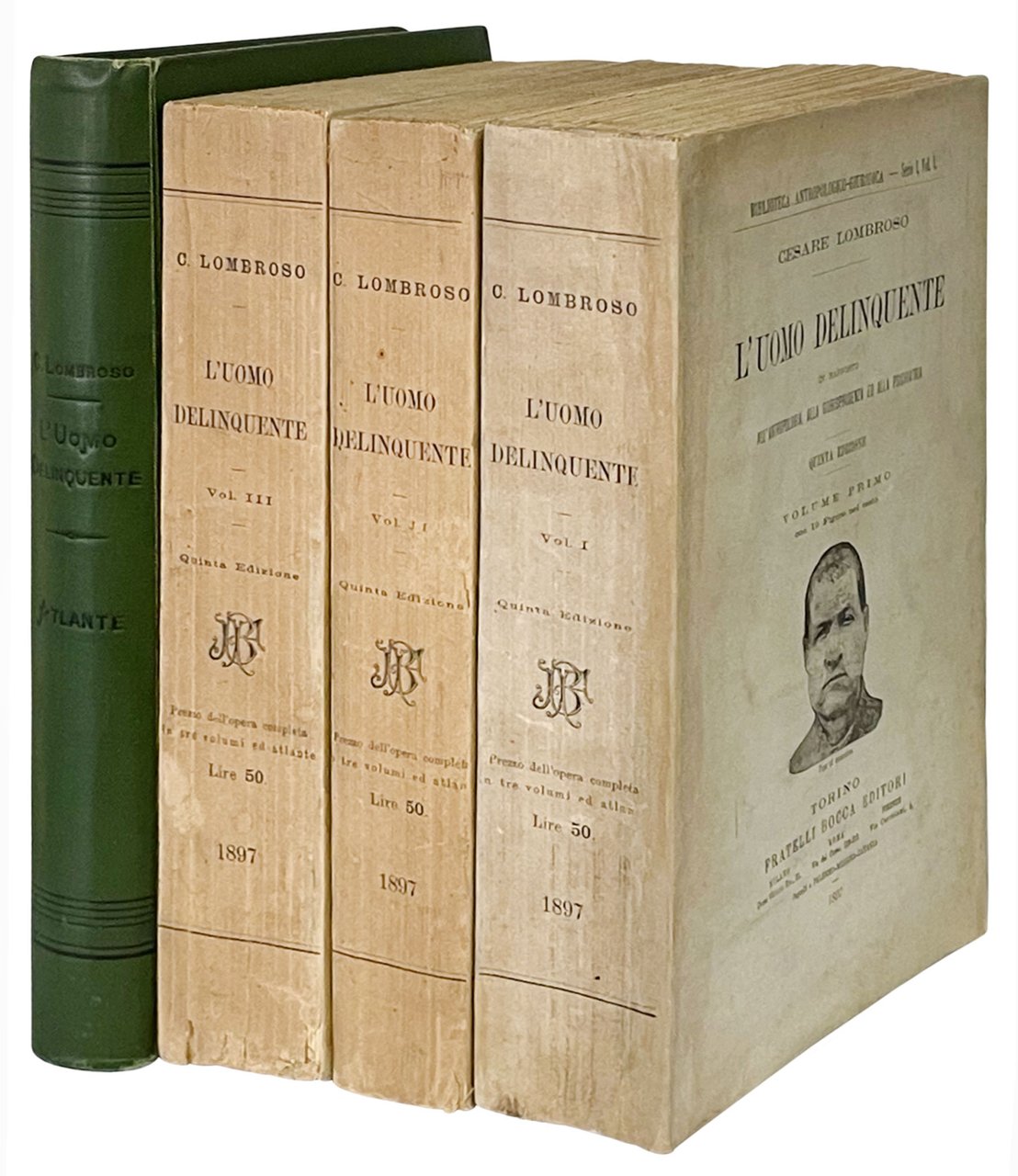
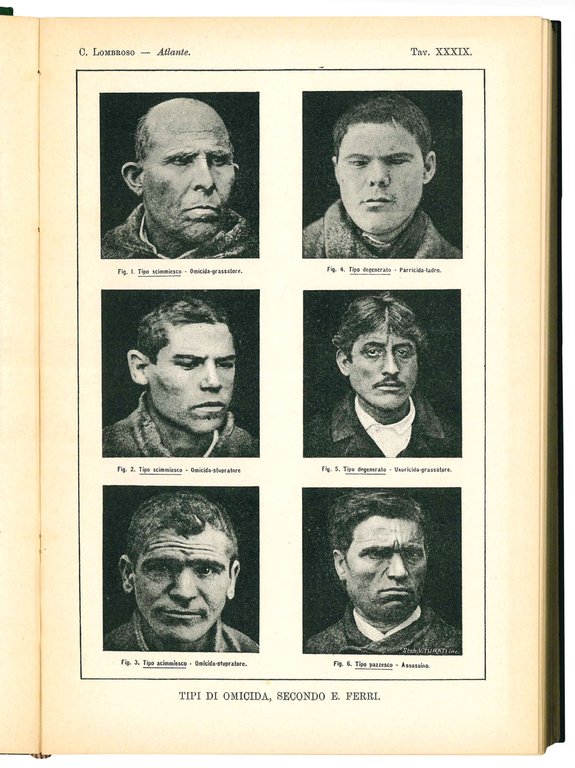
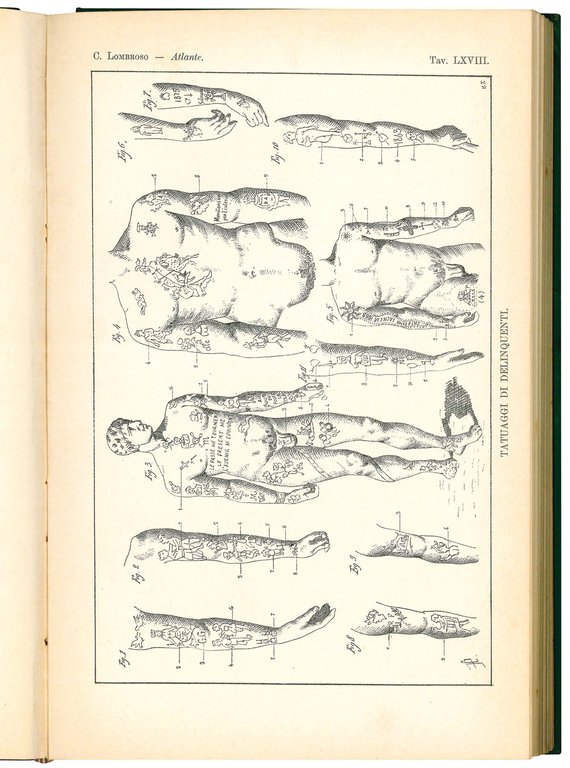
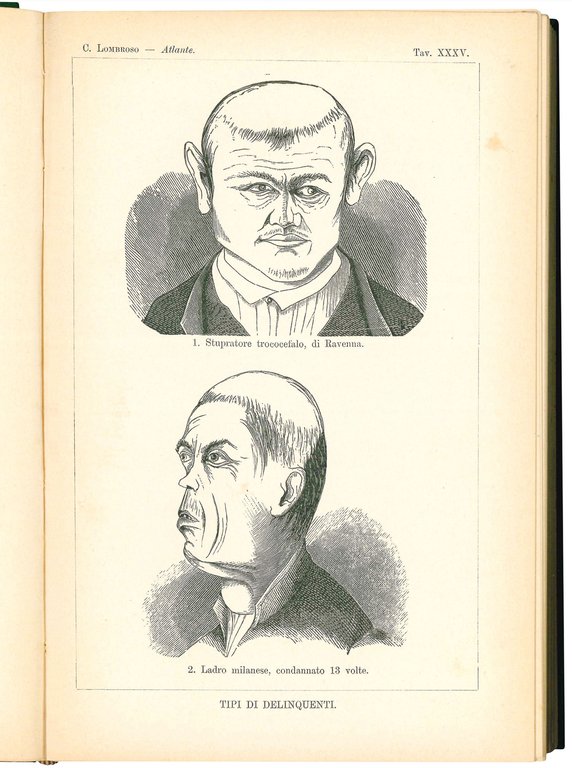
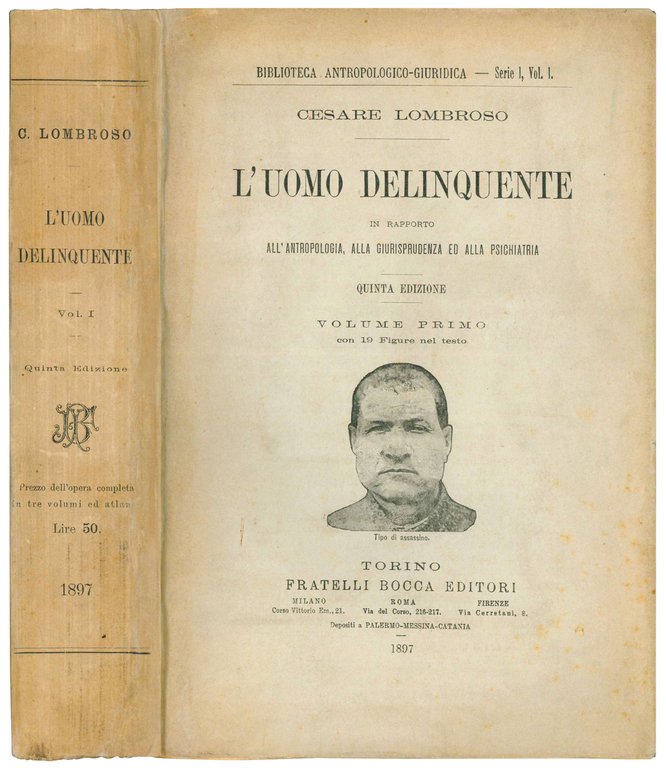
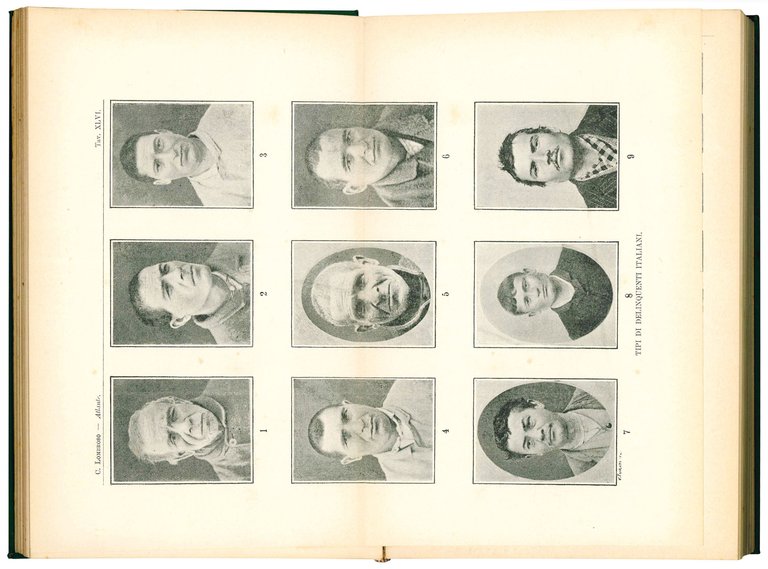
Libri antichi e moderni
LOMBROSO, Cesare (1835-1909)
L'uomo delinquente in rapporto all'antropologia, alla giurisprudenza ed alla psichiatria. Quinta edizione
Fratelli Bocca editori, 1897
1500,00 €
Govi Libreria Antiquaria
(Modena, Italie)
Le corrette spese di spedizione vengono calcolate una volta inserito l’indirizzo di spedizione durante la creazione dell’ordine. A discrezione del Venditore sono disponibili una o più modalità di consegna: Standard, Express, Economy, Ritiro in negozio.
Condizioni di spedizione della Libreria:
Per prodotti con prezzo superiore a 300€ è possibile richiedere un piano rateale a Maremagnum. È possibile effettuare il pagamento con Carta del Docente, 18App, Pubblica Amministrazione.
I tempi di evasione sono stimati in base ai tempi di spedizione della libreria e di consegna da parte del vettore. In caso di fermo doganale, si potrebbero verificare dei ritardi nella consegna. Gli eventuali oneri doganali sono a carico del destinatario.
Clicca per maggiori informazioniMetodi di Pagamento
- PayPal
- Carta di Credito
- Bonifico Bancario
-
-
Scopri come utilizzare
il tuo bonus Carta del Docente -
Scopri come utilizzare
il tuo bonus 18App
Dettagli
Descrizione
Fifth and definitive edition of the work that marks the birth of criminal anthropology. After the first edition printed in Milan by Ulrico Hoepli in 1876, the work went through five editions in Italian and was published in various European languages, including English in 1900.
The “Criminal Man”, immediately acclaimed as extremely innovative in the psychiatric and medical world of the time, was also addressed to judges and lawyers. It illustrates Lombroso's theories on the correlation between somatic and mental deformities with reference to specific factors such as atavism, degeneration, and epilepsy. Lombroso also discusses the legal implications of his theories, particularly in relation to the issue of “moral insanity”, understood as a serious disturbance of social behaviour. Lombroso was convinced of the pathological nature of the born criminal (whom he distinguished, medically and legally, from the occasional offender who commits a crime driven by special circumstances or needs) and of the possibility of explaining and predicting moral degeneration from its physical abnormalities. Lombroso is thus considered the founder of criminology. The work also contains interesting pages on the Mafia and the Camorra (cf. M. Gibson, Born to Crime. Cesare Lombroso and the Italian origins of Biological Criminology, Westport, 2002, passim).
“Lombroso […] maintained that criminals are more often found to suffer from physical, nervous and mental abnormalities than non-criminals, and that these abnormalities are either inherited or the result of physical degeneration […] ‘Criminal Man' was a revolutionary work which not only caused a considerable stir when it first came out but had a practical effect which was wholly beneficial. The division which it indicated between the congenital criminal and those who were tempted to crime by circumstances has had a lasting effect on penal theory. Again, by connecting the treatment of crime with the treatment of insanity, Lombroso initiated a branch of psychiatric research which has cast new light on problems, such as criminal responsibility, which lie at the root of human society” (J. Carter-P.H. Muir, Printing and the Mind of Man, London, 1967, p. 221).
Lombroso was born in Verona in 1835 into a wealthy Jewish family. He studied literature, linguistics, and archaeology at the universities of Padua, Vienna, and Paris before becoming an army surgeon in 1859. In 1866 he became a visiting professor in Pavia, and in 1871 he took charge of the mental hospital in Pesaro. In 1878 he became professor of forensic medicine and hygiene in Turin. Later he was appointed professor of psychiatry (1896) and criminal anthropology (1906) at the same university. He died in Turin in 1909 (cf. M.E. Wolfgang, Pioneers in Criminology: Cesare Lombroso (1835-1909), in: “The Journal of Criminal Law, Criminology, and Police Science”, 1961, 52.4, p. 361 ff.).
G. Armocida, Lombroso, Cesare, in “Dizionario Biografico degli Italiani”, Rome, 2005, vol. 65, pp. 548-553; H. Mannheim, Pioneers in Criminology, London, 1960, pp. 168-227.

